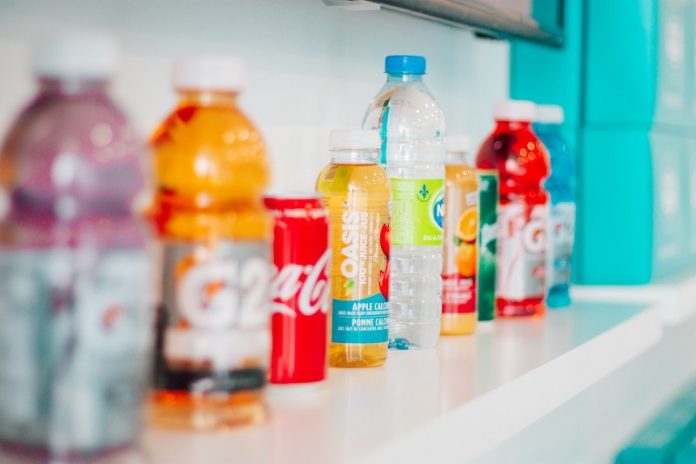
In a recent study, some researchers wanted to find out if drinking sugary beverages and artificially sweetened beverages (ASBs) could affect a person’s risk of getting type 2 diabetes.
They conducted a study called “Changes in Beverage Consumption and Risk of Type 2 Diabetes” study.
To do this study, the researchers followed over 190,000 people (76,531 women in the Nurses’ Health Study, 81,597 women in the Nurses’ Health Study II, and 34,224 men in the Health Professional’s Follow-up Study) for many years.
They asked the participants how many sugary beverages and ASBs they drank each day, and they followed up with them every 4 years to see if they developed type 2 diabetes.
The researchers found that people who increased their consumption of sugary beverages (including sugar-sweetened beverages and 100% fruit juices) by more than 0.50 servings per day over a 4-year period had a 16% higher risk of developing type 2 diabetes in the subsequent 4 years.
Similarly, people who increased their consumption of ASBs by more than 0.50 servings per day had an 18% higher risk of developing type 2 diabetes.
On the other hand, people who replaced one daily serving of sugary beverage with water, coffee, or tea (but not ASB) had a 2-10% lower risk of developing type 2 diabetes.
Overall, this study suggests that drinking more sugary beverages or ASBs may increase a person’s risk of developing type 2 diabetes, while replacing them with water, coffee, or tea may lower that risk.
However, the researchers also noted that the association between ASB consumption and diabetes risk may be affected by factors such as reverse causation and surveillance bias.
The findings suggest it’s important to be mindful of how much sugary beverages and ASBs we consume and to consider choosing healthier beverage options like water, coffee, or tea instead.
What to eat to prevent type 2 diabetes
Preventing type 2 diabetes involves adopting a healthy diet and lifestyle habits. Here are some dietary tips that may help prevent type 2 diabetes:
Eat a balanced diet: Include a variety of fruits, vegetables, whole grains, lean protein, and healthy fats in your diet. Avoid processed and high-calorie foods.
Choose low-glycemic index (GI) foods: These foods are digested and absorbed more slowly, causing a slower rise in blood sugar levels. Examples of low-GI foods include non-starchy vegetables, whole grains, nuts, and legumes.
Limit intake of sugary drinks: Consuming sugary drinks regularly can increase the risk of type 2 diabetes. Instead, drink water, unsweetened tea, or coffee.
Reduce intake of red and processed meat: High intake of red and processed meat has been linked to an increased risk of type 2 diabetes. Try to limit your intake and choose lean sources of protein, such as chicken, fish, and legumes.
Choose healthy fats: Replace saturated and trans fats with unsaturated fats such as olive oil, avocados, nuts, and seeds.
Maintain a healthy weight: Being overweight or obese increases the risk of developing type 2 diabetes. Adopting a healthy diet and engaging in regular physical activity can help you maintain a healthy weight.
Stay active: Regular physical activity can help prevent type 2 diabetes by improving insulin sensitivity and maintaining a healthy weight. Aim for at least 150 minutes of moderate-intensity exercise per week.
Remember that preventing type 2 diabetes involves making healthy lifestyle choices.
Talk to your healthcare provider about any dietary changes or lifestyle modifications you plan to make, especially if you have any pre-existing health conditions.
The research was published in Diabetes Care.
Copyright © 2023 Scientific Diet. All rights reserved.





